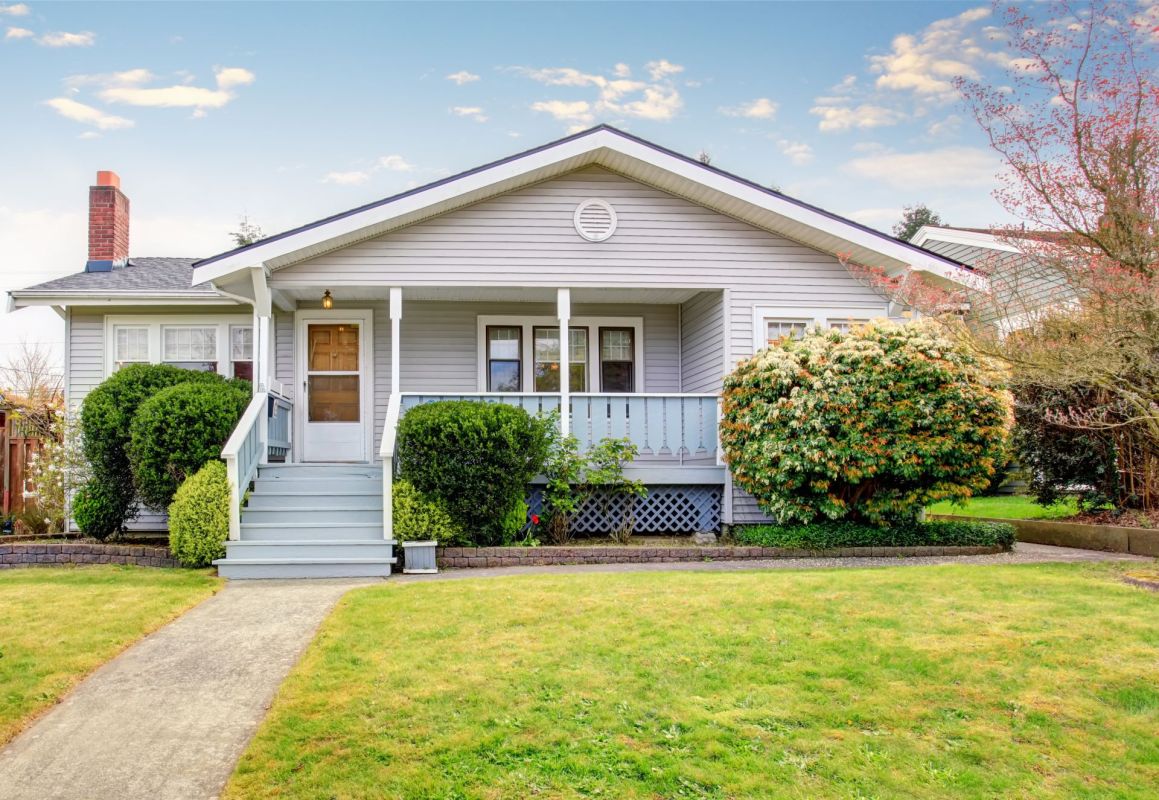Angela Rosencrans was told she had to rip out her lawn.
Laurie McGuire tried to install solar panels and was denied — despite state laws in her favor.
Marissa Dailey was told banned from parking an electric car in her garage.
An estimated 74 million people in the U.S. live in areas governed by a homeowners association (HOA) — and many of them are frustrated about HOA restrictions that prevent them from saving money and helping the planet.
Over the past several months, The Cool Down has profiled dozens of real people who have struggled with their HOAs — and we've shown how many of them have navigated them. Some homeowners have successfully changed HOA rules or even state laws, often with the support of their HOA boards. Meanwhile, others have found ways to work within HOA restrictions.
These changes can save homeowners hundreds or even thousands of dollars. And they often benefit the whole community by raising property values, lowering energy costs, and making the community more resilient to storms and other disasters. However, many HOAs remain resistant to change.
Based on our research, we've put together a simple guide to navigating your HOA — and making real changes in your home and your local community.
Where to start
HOAs usually have multiple sets of rules that govern their activities. The first step to enacting change is getting your hands on them.
The CC&Rs are the collected rules in the legal document that forms the HOA. This set of rules is also called the Declarations of Covenants, Conditions, and Restrictions; the master deed; the HOA covenants; or the declaration. It defines the organization's powers and responsibilities, as well as the duties and rights of homeowners within the HOA.
The bylaws are recorded in a second legal document detailing how the HOA functions. It defines when and where meetings are held, how board members are chosen, and how HOA members can vote.
Other rules can be set by the HOA following the procedures outlined in the CC&Rs and the bylaws. They aren't legally binding or filed with the local government, which makes them the easiest type of rule to change.
You can ask the HOA for these documents or look for them online or at your state's corporation commission website. Once you've read them, start attending HOA meetings to get a feel for how the organization operates, who's involved, and what issues are already being discussed.
You should also research state laws that may apply to your situation (more on that below). These may be laws about HOAs in general, or they may be about the specific action you want to take, like adding solar panels. These can be found on your state government's website.
Finally, you need to know what kind of help and support may be available in your community. Talk to other homeowners about the HOA. Getting your neighbors on board is a big part of any campaign.
Who to reach out to
The members of your HOA board have the most power to change an HOA decision. Some issues can be sorted out just by explaining your position to a board member, especially if there isn't a specific rule against your request. They're also the first people to talk to if you want to actually change the rules, bylaws, or CC&Rs.
Many HOAs have websites that list their current board members, and some states even require them to post this information online. You can also ask the agency responsible for overseeing corporations in your state since most HOAs are nonprofits. The Homeowners Protection Bureau has published a list of the correct agencies to contact in every state.
The process to change rules in your HOA depends on the existing bylaws. However, changing the CC&Rs or bylaws usually requires the homeowners in the association to vote. Other rules can usually be created, changed, or removed with just a vote by the board.
How to start the conversation
Before you write a letter or email to your HOA board, take some time to consider exactly why you're writing. Are you bringing a problem to the board's attention, making a formal complaint, or asking for a rule change? Consider the outcome you want, and be clear and upfront about it in your message.
Next, do your research. Make sure everything you say is factual and specific, and be ready to back it up with evidence and sources.
Finally, while emotions can run high when discussing something as personal as your home, make sure the tone of your message is calm and professional. Losing your temper can make board members less likely to want to help you.
Your message might look something like this:
Subject: Proposal for Switching to Community Solar Energy
To the [Community Name] Homeowners Association Board of Directors,
I hope this email finds you well. I am writing to inquire if the association has considered the possibility of switching to community solar energy to power our building. As a concerned member of the community, I would like to highlight the numerous benefits of community solar programs, including cost savings and environmental sustainability.
Community solar programs offer numerous financial benefits, including reduced utility bills and potential tax incentives. Moreover, by participating in a community solar program, our building can reduce its negative environmental impact, which will keep our community and its residents safe as our planet continues to overheat.
I believe that this move would be a significant step in the right direction toward achieving a more sustainable and energy-efficient community.
Thank you for considering my proposal. I would be happy to discuss this matter further or answer any questions you may have.
Sincerely, [Your Name]
A letter should also include a date and your HOA's address, but if you're sending it as an email, you don't need to add those.
You may also have the opportunity to talk about the issue at your next HOA meeting. Check your bylaws to find out what topics these meetings cover and how to get your issue on the agenda.
How to find state laws
Many states and local governments have laws about what HOAs can or can't do. Some HOAs will violate those laws unknowingly. When an HOA's decisions or rules conflict with the law, the government gets the final say, so finding specific laws that support your position is the most reliable way to succeed.
You can find your state's laws on your state legislature's website. The U.S. Congress maintains a list of links to individual states' sites.
Different state websites may have tools that make it easier to find relevant topics. If you're having trouble, you can also search online for analysis from lawyers, realtors, environmental groups, and others; many of them will cite specific laws so you can look up the full text yourself.
For example, Solar United Neighbors has information about specific solar panel laws in 11 states, D.C., and Puerto Rico; and FindHOALaw covers all laws governing HOAs in California.
How to bring about change
Now that you have all the information you need, here's how you put it together to get a rule changed.
Start by researching the problem, including the exact rules that are already in place — relevant laws in your state, county, and city, and whether this problem is already being discussed in your neighborhood or at HOA meetings. Keep track of specifics, including supporting laws and documents.
Next, decide on the specific changes you want to push for. Think about what would benefit you and your neighbors, since you'll need their support. Ideally, you will be working with your neighbors and HOA toward a change most people want. Consult with residents of your HOA who are interested in the issue to create a proposal for the board and to spread awareness to other neighbors.
Finally, present your proposal to your HOA board. There may be a specific process for this outlined in your bylaws. The bylaws will also govern the approval process — usually, this involves an HOA meeting to discuss the amendment, followed by a vote.
If you find that your HOA board is knowingly violating the law or not following the processes outlined for changing their rules, your next step is to involve a lawyer. This is easier to do as a group with other HOA residents who support your efforts.
Join our free newsletter for easy tips to save more, waste less, and help yourself while helping the planet.








